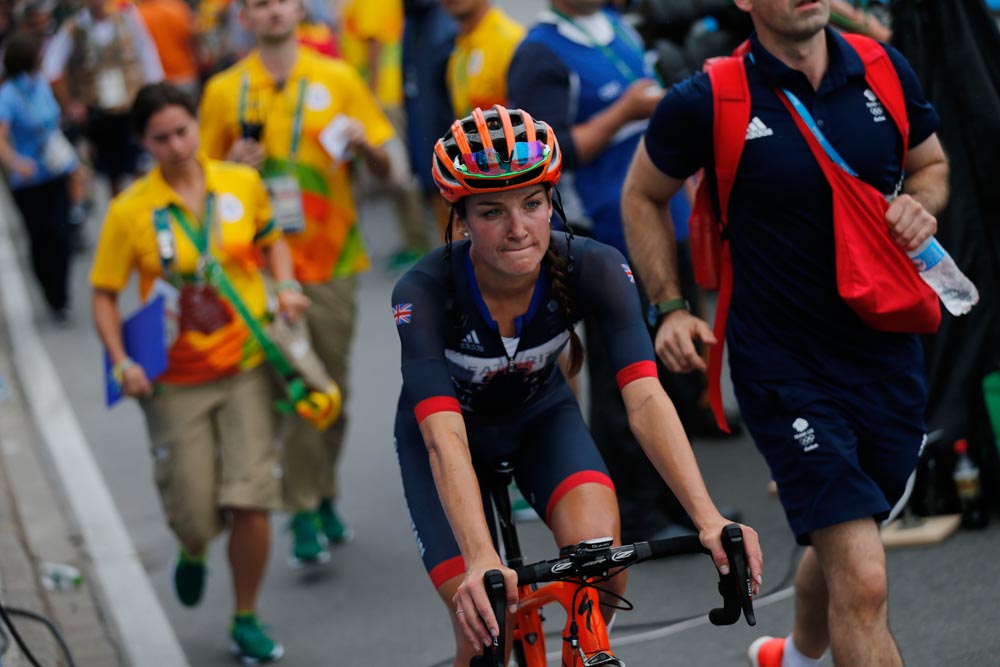Expert opinion: What about an athlete's right to privacy?
Paul Dimeo looks at another side of the anti-doping fight, the right to privacy for athletes

The disappointment shows on Lizzie Armitstead's face she crossed the line in fifth in the women's Olympic road race. Photo: Yuzuru Sunada
The latest race content, interviews, features, reviews and expert buying guides, direct to your inbox!
You are now subscribed
Your newsletter sign-up was successful
Lizzie Armitstead almost lost her place in the Olympics after missing three anti-doping tests. She found herself under pressure to explain the reasons, which included a personal family matter.
While much of the debate focused on the consistency of the appeals process, the reality hardly discussed is the level of personal surveillance to which athletes are subjected and the invasion of their privacy — unparalleled in any other walk of life.
An athlete selected for the Registered Testing Pool (RTP) must register a time slot of one hour per day between 5am and 11pm during which they can be found and potentially tested.
They must be in that location for the full hour, but can inform their national anti-doping authority of any last-minute changes to their plans. (Any athlete can be randomly drug-tested, not just those on the RTP.)
The test involves the humiliating process of urinating in front of a drugs control officer, who is closely positioned to ensure the urine leaves the body without any form of interference.
There is no minimum age (under-18s can have a chosen representative present). All athletes have their urine and blood samples scrutinised.
Read more about Lizzie Armitstead's case
The latest race content, interviews, features, reviews and expert buying guides, direct to your inbox!
Mark Cavendish: Lizzie Armitstead absolutely at fault for whereabouts failures
Lizzie Armitstead: 'I'll have to accept that people will doubt me forever'
Lizzie Armitstead writes personal statement addressing 'Whereabouts Failures'
How did Lizzie Armitstead miss three anti-doping tests? 'Whereabouts' system explained
Personal bodily functions are examined, assessed and, if any problem found, turned into a public spectacle and examination that questions their morals and self-discipline.
Athletes must also declare any form of medical drug they are taking, thus allowing access to their personal lives and potentially embarrassing illnesses or (legal) substance use.
Any missed test or suspicious finding can lead to demands for an explanation. It could be a tough choice: publicly confess all or get banned.
Is this intrusion into an athlete’s personal life justifiable? Few if any other professions have such extreme requirements.
Athletes have no choice but to accept a surveillance system that is a more or less full-time monitoring of their public and private behaviours: all in the name of clean sport.
Yet the vast majority of athletes are clean — at least, they are according to WADA’s testing statistics — and evidence suggests the real cheats continue to beat the system.
In a civilised society, should we accept such blatant infringements of basic rights to dignity and privacy?
Paul Dimeo is a lecturer in sports policy at the University of Stirling. He has a special interest in anti-doping policy
Jack Elton-Walters hails from the Isle of Wight, and would be quick to tell anyone that it's his favourite place to ride. He has covered a varied range of topics for Cycling Weekly, producing articles focusing on tech, professional racing and cycling culture. He moved on to work for Cyclist Magazine in 2017 where he stayed for four years until going freelance. He now returns to Cycling Weekly from time-to-time to cover racing, review cycling gear and write longer features for print and online.